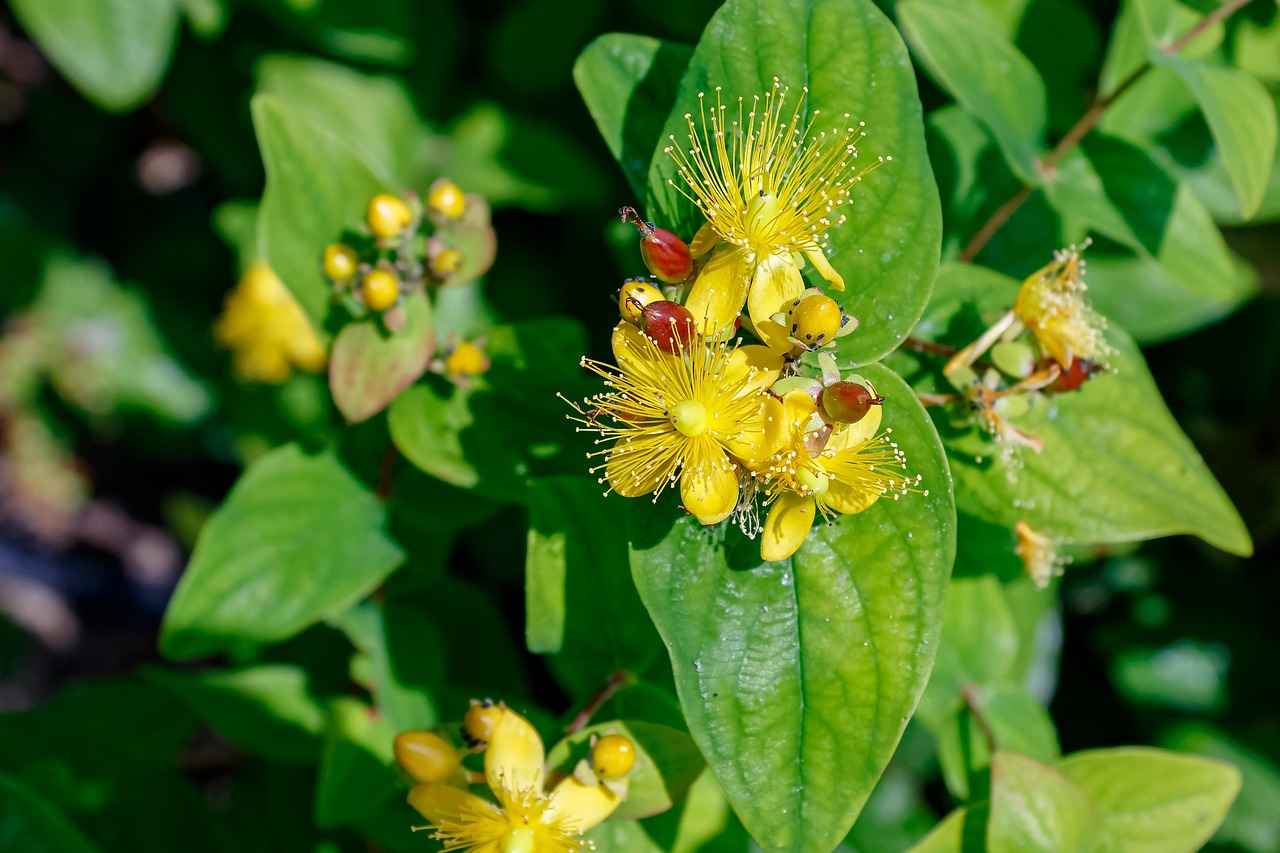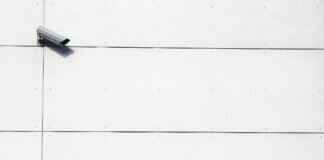This article delves into the therapeutic properties of St. John’s Wort, a natural remedy that has garnered attention for its efficacy in treating mild to moderate depression. We will explore its mechanisms of action, efficacy based on clinical studies, potential side effects, and guidelines for safe use, providing a comprehensive overview for those interested in alternative approaches to mental health.
What is St. John’s Wort?
St. John’s Wort (Hypericum perforatum) is a flowering plant recognized for its medicinal properties, particularly in the realm of mental health. Historically, it has been used for centuries in various cultures to alleviate symptoms of depression and anxiety.
How Does St. John’s Wort Work?
The active components of St. John’s Wort, namely hypericin and hyperforin, are believed to play a crucial role in its antidepressant effects. These compounds interact with neurotransmitters in the brain, particularly serotonin, dopamine, and norepinephrine, which are vital for mood regulation.
Clinical Studies and Efficacy
Numerous clinical studies have examined the effectiveness of St. John’s Wort in treating depression. Research indicates that it can be as effective as traditional antidepressants for some individuals, particularly for those with mild to moderate symptoms.
Potential Side Effects of St. John’s Wort
While generally considered safe, St. John’s Wort can cause side effects. Common issues include gastrointestinal discomfort and fatigue. More serious concerns involve potential interactions with other medications, making it essential to consult a healthcare provider before use.
Who Should Consider St. John’s Wort?
This natural remedy may be beneficial for individuals experiencing mild to moderate depression. However, it is crucial to consider contraindications, especially for those on specific medications or with certain health conditions.
How to Use St. John’s Wort Safely
To maximize the benefits while minimizing risks, users should adhere to recommended dosages and forms. St. John’s Wort is available in capsules, teas, and extracts, each with its advantages and disadvantages.
Conclusion: Is St. John’s Wort Right for You?
In conclusion, St. John’s Wort presents a promising alternative for those seeking natural relief from depression. However, it is vital to engage with healthcare professionals to tailor the approach to individual needs and circumstances.

What is St. John’s Wort?
St. John’s Wort (Hypericum perforatum) is a perennial flowering plant that has garnered attention for its medicinal properties, especially in the realm of mental health. Traditionally used for centuries, this herb is primarily recognized for its effectiveness in treating mild to moderate depression. The plant features bright yellow flowers that bloom in clusters, characterized by their unique appearance and distinctively shaped leaves.
Historically, St. John’s Wort has been utilized in various cultures for its healing properties. Ancient Greeks employed it to treat wounds and as a remedy for mental health issues. In the Middle Ages, it was commonly used to ward off evil spirits, which reflects its long-standing association with mental well-being. Today, it is often consumed in the form of capsules, teas, or tinctures, making it accessible for those seeking natural alternatives to conventional antidepressants.
The popularity of St. John’s Wort in modern herbal medicine can be attributed to numerous studies that have highlighted its potential benefits. Research indicates that it may work similarly to selective serotonin reuptake inhibitors (SSRIs) by influencing neurotransmitter levels in the brain, particularly serotonin. This mechanism of action has positioned it as a viable option for individuals looking to manage their depressive symptoms without the side effects commonly associated with pharmaceutical drugs.
Despite its advantages, it is essential to approach St. John’s Wort with caution. As with any herbal remedy, there are potential side effects and interactions with other medications that users should be aware of. Therefore, consulting a healthcare professional before starting treatment is highly advisable.
In summary, St. John’s Wort is a remarkable plant with a rich history and a promising role in the management of depression. Its natural origins and therapeutic properties continue to attract interest from both practitioners and patients alike.

How Does St. John’s Wort Work?
St. John’s Wort, a well-known herbal remedy, has garnered attention for its antidepressant properties. The key active compounds in this plant, namely hypericin and hyperforin, are believed to play a significant role in its therapeutic effects on mood disorders. This section explores how these compounds interact with neurotransmitters in the brain, providing insight into their mechanisms of action.
| Component | Function |
|---|---|
| Hypericin | Inhibits the reuptake of serotonin and has antiviral properties. |
| Hyperforin | Enhances serotonin, dopamine, and norepinephrine levels, contributing to mood elevation. |
The interaction of these compounds with neurotransmitters is crucial for understanding the overall effects of St. John’s Wort. Neurotransmitters are chemicals that facilitate communication between nerve cells, and their balance is vital for maintaining mental health. St. John’s Wort is believed to influence the levels of key neurotransmitters:
- Serotonin: Often referred to as the “feel-good” neurotransmitter, serotonin plays a crucial role in mood regulation. St. John’s Wort’s ability to inhibit serotonin reuptake is similar to that of many conventional antidepressants.
- Dopamine: This neurotransmitter is associated with pleasure and reward. By increasing dopamine levels, St. John’s Wort may help improve mood and motivation.
- Norepinephrine: This neurotransmitter is involved in the body’s stress response. Enhancing norepinephrine levels can lead to increased energy and alertness.
Furthermore, research suggests that St. John’s Wort may also possess anti-inflammatory properties, which could contribute to its antidepressant effects. By reducing inflammation in the brain, it may help improve overall mood and cognitive function.
In summary, the active components of St. John’s Wort, particularly hypericin and hyperforin, play a pivotal role in its effectiveness as a natural antidepressant. Their interaction with neurotransmitters not only supports mood elevation but also enhances emotional well-being.
Mechanisms of Action
Understanding the Mechanisms of Action of St. John’s Wort
St. John’s Wort, a popular herbal remedy for depression, has gained attention for its potential to influence mood through various biological mechanisms. This section delves into how this plant affects neurotransmitter levels in the brain, specifically focusing on serotonin, dopamine, and norepinephrine.
- Serotonin Modulation: St. John’s Wort is believed to enhance serotonin levels by inhibiting its reuptake. This process means that serotonin remains available in the synaptic cleft for a longer duration, potentially improving mood and alleviating symptoms of depression.
- Dopamine Influence: Research suggests that St. John’s Wort may also positively affect dopamine levels. Dopamine is crucial for feelings of pleasure and reward, and its modulation could lead to improved motivation and emotional well-being.
- Norepinephrine Activity: This herb may influence norepinephrine levels, a neurotransmitter associated with alertness and arousal. By balancing norepinephrine, St. John’s Wort can help combat fatigue and enhance cognitive function.
The interactions of these neurotransmitters are complex, and the overall effect of St. John’s Wort on mood is likely due to a combination of these mechanisms. Understanding these interactions can help maximize the therapeutic benefits of this herbal remedy.
Moreover, the active compounds in St. John’s Wort, such as hypericin and hyperforin, are thought to play significant roles in these processes. Hyperforin, in particular, is noted for its ability to inhibit the reuptake of multiple neurotransmitters, further contributing to the antidepressant effects.
In conclusion, a deeper understanding of how St. John’s Wort affects neurotransmitter levels can enhance its application in treating mood disorders. As research continues to evolve, it is essential for potential users to consult healthcare professionals to tailor its use to their individual needs.
Serotonin Reuptake Inhibition
Understanding the Role of St. John’s Wort in Mood Regulation
St. John’s Wort, a herbal remedy derived from the plant Hypericum perforatum, has garnered attention for its potential in alleviating symptoms of depression and anxiety. One of its key mechanisms is believed to be the inhibition of serotonin reuptake, which is similar to how many conventional antidepressants function.
How Does Serotonin Reuptake Inhibition Work?
In the brain, serotonin is a neurotransmitter that plays a crucial role in regulating mood, emotions, and overall mental well-being. When serotonin is released into the synaptic cleft, it binds to receptors on neighboring neurons, transmitting signals that contribute to feelings of happiness and contentment. However, once its job is done, serotonin is typically reabsorbed by the presynaptic neuron in a process known as reuptake.
St. John’s Wort is thought to inhibit this reuptake process, allowing serotonin to remain in the synaptic cleft for a longer period. This increased availability of serotonin can enhance mood and reduce feelings of anxiety.
Implications for Mood Regulation
- Mood Enhancement: By prolonging the action of serotonin, St. John’s Wort may help improve mood and emotional balance.
- Anxiety Relief: The increased serotonin levels can also contribute to reduced anxiety symptoms, making it a potential option for those dealing with anxiety disorders.
Research and Studies
Numerous clinical studies have explored the efficacy of St. John’s Wort in treating mild to moderate depression. Findings suggest that it may be as effective as some prescription antidepressants, with fewer side effects. However, it is essential to approach its use cautiously and consult with a healthcare professional, especially for individuals on other medications.
Conclusion
In summary, the serotonin reuptake inhibition mechanism of St. John’s Wort offers promising implications for mood regulation and anxiety relief. As interest in natural remedies continues to grow, further research is warranted to fully understand its benefits and potential risks for various individuals.
Impact on Neurotransmitter Levels
This section delves into the intricate ways in which St. John’s Wort interacts with neurotransmitters in the brain, a key factor in its antidepressant properties. By understanding these interactions, we can better appreciate its role in promoting emotional well-being.
The primary active compounds in St. John’s Wort, namely hypericin and hyperforin, are known to influence various neurotransmitter systems. These compounds have been shown to enhance the availability of neurotransmitters such as serotonin, dopamine, and norepinephrine, which are crucial for maintaining mood stability.
- Serotonin: St. John’s Wort is believed to inhibit the reuptake of serotonin, similar to many conventional antidepressants. This mechanism helps to increase serotonin levels in the synaptic cleft, leading to improved mood and reduced anxiety.
- Dopamine: The herb also appears to influence dopamine levels, which can enhance motivation and pleasure. This is particularly beneficial for individuals experiencing depressive symptoms that include a lack of interest in daily activities.
- Norepinephrine: By modulating norepinephrine levels, St. John’s Wort may help to improve alertness and energy, combating the fatigue often associated with depression.
Additionally, research suggests that St. John’s Wort may have a role in reducing levels of cortisol, a hormone associated with stress. Lower cortisol levels can contribute to a more balanced emotional state, further enhancing the overall antidepressant effects of this herb.
In summary, the impact of St. John’s Wort on neurotransmitter levels is multifaceted, contributing significantly to its effectiveness as a natural remedy for depression. Understanding these mechanisms not only highlights its potential benefits but also underscores the importance of consulting with healthcare professionals before starting any new treatment.
Clinical Studies and Efficacy
In recent years, the use of St. John’s Wort as a natural remedy for depression has gained considerable attention. Numerous clinical studies have been conducted to evaluate its efficacy, revealing promising results that suggest this herbal treatment can be effective for many individuals suffering from mild to moderate depression.
One landmark study published in the Journal of the American Medical Association found that St. John’s Wort was significantly more effective than a placebo in alleviating symptoms of depression. The study involved over 400 participants and measured various outcomes related to mood and emotional well-being. The findings indicated that those who received St. John’s Wort experienced a notable reduction in depressive symptoms compared to those who received a placebo.
Another meta-analysis, which aggregated data from multiple studies, concluded that St. John’s Wort is comparable to conventional antidepressants in treating mild to moderate depression. This suggests that for some patients, particularly those who prefer natural remedies, St. John’s Wort may be a viable alternative to traditional pharmaceutical treatments.
However, it is essential to consider the limitations of these studies. Many trials have small sample sizes or lack rigorous control measures. Additionally, the quality of St. John’s Wort preparations can vary significantly, which may influence the results. Therefore, while the evidence supports its efficacy, further research is necessary to establish standardized dosages and formulations.
In clinical practice, healthcare providers should evaluate the individual needs of patients considering St. John’s Wort. It is crucial to discuss potential interactions with other medications and to monitor patients closely for any side effects. This holistic approach ensures that patients receive the most effective treatment tailored to their specific conditions.
In summary, the body of research surrounding St. John’s Wort demonstrates its potential as an effective treatment for depression. As interest in natural remedies continues to grow, it is vital for both patients and healthcare professionals to stay informed about the latest findings and best practices regarding its use.

Potential Side Effects of St. John’s Wort
While St. John’s Wort is widely regarded as a natural remedy for mild to moderate depression, it is essential to understand that its use is not without risks. Although many individuals may benefit from its therapeutic properties, side effects and drug interactions can occur, necessitating caution.
Common Side Effects
- Gastrointestinal Issues: Some users report mild gastrointestinal discomfort, including nausea, diarrhea, or stomach cramps.
- Fatigue: A feeling of tiredness or lethargy may be experienced, particularly during the initial stages of use.
- Allergic Reactions: Skin rashes or allergic reactions can occur in sensitive individuals.
- Phot sensitivity: Increased sensitivity to sunlight, leading to a higher risk of sunburn, is another potential side effect.
Serious Side Effects
In rare instances, more severe side effects may arise:
- Mania: Individuals with bipolar disorder may experience manic episodes when using St. John’s Wort.
- Severe Allergic Reactions: Symptoms such as difficulty breathing or swelling of the face and throat require immediate medical attention.
Drug Interactions
St. John’s Wort is known to interact with various medications, which can significantly reduce their effectiveness. Some common drug interactions include:
- Antidepressants: Combining St. John’s Wort with other antidepressants can lead to serotonin syndrome, a potentially life-threatening condition.
- Blood Thinners: It may reduce the effectiveness of anticoagulants like warfarin, increasing the risk of clotting issues.
- Oral Contraceptives: Women taking birth control pills may find their effectiveness diminished, leading to unintended pregnancies.
Given these potential side effects and interactions, it is crucial for individuals considering St. John’s Wort to consult with healthcare providers. By doing so, they can ensure safe usage and optimize their treatment for depression.
Common Side Effects
While St. John’s Wort is widely used for its potential anti-depressive effects, it is important to be aware of the that some users may experience. These side effects are generally mild but can affect daily life. Understanding these issues and knowing how to manage them can help users make informed decisions about their treatment options.
| Side Effect | Description | Management Tips |
|---|---|---|
| Gastrointestinal Discomfort | Users may experience symptoms such as nausea, diarrhea, or stomach cramps. |
|
| Fatigue | Some individuals report feeling unusually tired or lethargic. |
|
| Allergic Reactions | In rare cases, users may develop skin rashes or other allergic responses. |
|
It is crucial for users to consult with healthcare professionals before starting St. John’s Wort, especially if they are taking other medications. This precaution helps to avoid potential interactions and ensures that the benefits of St. John’s Wort can be enjoyed safely. Awareness and management of these common side effects can lead to a more positive experience with this natural remedy.
Drug Interactions
Drug Interactions with St. John’s Wort
St. John’s Wort (Hypericum perforatum) is a popular herbal remedy known for its antidepressant properties. However, it is crucial to understand that this herb can significantly interact with various medications, potentially reducing their effectiveness and leading to unintended consequences. This section highlights some specific drugs that may be affected by St. John’s Wort, emphasizing the importance of consulting healthcare providers before starting any new treatment.
- Antidepressants: St. John’s Wort can interact with selective serotonin reuptake inhibitors (SSRIs) and other antidepressants, potentially leading to serotonin syndrome, a serious condition caused by excessive serotonin levels.
- Anticoagulants: Medications like warfarin may have reduced effectiveness when taken with St. John’s Wort, increasing the risk of blood clots.
- Birth Control Pills: St. John’s Wort can lower the effectiveness of hormonal contraceptives, leading to unintended pregnancies.
- Anti-HIV Medications: It may interfere with the efficacy of certain antiretroviral drugs, which can compromise treatment outcomes for individuals with HIV.
- Immunosuppressants: Drugs such as cyclosporine may have reduced levels in the blood when taken with St. John’s Wort, potentially affecting organ transplant patients.
Given these potential interactions, it is essential for individuals considering St. John’s Wort to discuss their current medications with a healthcare provider. This ensures a safe and effective treatment plan that minimizes risks and maximizes benefits.
In summary, while St. John’s Wort can be a valuable natural remedy, its ability to interact with various medications underscores the need for caution and professional guidance. Always prioritize safety and consult with your healthcare provider before incorporating any new supplement into your regimen.

Who Should Consider St. John’s Wort?
St. John’s Wort, a popular herbal remedy, has gained attention for its potential benefits in managing mild to moderate depression. However, understanding who may benefit from this natural treatment is crucial for safe and effective use. Below, we highlight the groups of individuals who might find St. John’s Wort advantageous, as well as those who should approach it with caution.
- Individuals with Mild to Moderate Depression: Research indicates that St. John’s Wort may be effective for people experiencing symptoms of mild to moderate depression. It can serve as an alternative for those who prefer natural remedies over conventional antidepressants.
- People Seeking Complementary Therapies: For individuals already undergoing treatment for depression, St. John’s Wort can be considered as a complementary option. However, it is essential to consult with a healthcare provider before adding it to existing treatment plans.
- Individuals with Anxiety Disorders: Some studies suggest that St. John’s Wort may also help alleviate symptoms of anxiety, making it a potential option for those struggling with both anxiety and depression.
- Patients Seeking Natural Remedies: Those who prefer herbal treatments or have concerns about the side effects of pharmaceutical medications may find St. John’s Wort appealing.
Contraindications: While St. John’s Wort can be beneficial for some, certain populations should avoid its use:
- Pregnant or Nursing Women: The safety of St. John’s Wort during pregnancy and lactation has not been established, and it is advisable to consult a healthcare professional.
- Individuals on Specific Medications: St. John’s Wort can interact with various medications, including antidepressants, birth control pills, and anticoagulants. Therefore, individuals taking these medications should refrain from using St. John’s Wort without medical advice.
- People with Severe Depression: Those experiencing severe depression or suicidal thoughts should seek immediate professional help rather than relying on herbal remedies.
In summary, while St. John’s Wort may offer benefits for certain individuals, it is essential to evaluate personal health circumstances and consult with healthcare professionals before beginning treatment.

How to Use St. John’s Wort Safely
When considering the use of St. John’s Wort as a natural remedy for depression, it is crucial to follow proper usage guidelines to maximize its benefits while minimizing potential risks. This section aims to provide practical advice on dosage, administration, and safety precautions.
Recommended Dosage
Determining the appropriate dosage of St. John’s Wort is essential for achieving the desired therapeutic effects. Generally, clinical studies suggest a daily dosage ranging from 300 mg to 1800 mg of standardized extract, typically taken in three divided doses. However, it is vital to consult with a healthcare professional to tailor the dosage to individual needs, especially for those with pre-existing conditions or those taking other medications.
Forms of St. John’s Wort
St. John’s Wort is available in various forms, each with its own advantages and disadvantages:
- Capsules: Easy to take and provide a consistent dosage.
- Teas: A natural option that allows users to control the strength but may vary in potency.
- Extracts: Highly concentrated and often more potent; however, they require careful measurement.
Choosing the right form depends on personal preference and lifestyle, but it is essential to ensure that the product is standardized to contain active compounds.
Potential Interactions and Precautions
St. John’s Wort can interact with numerous medications, including antidepressants, birth control pills, and anticoagulants. It is crucial to discuss any current medications with a healthcare provider to avoid adverse effects. Additionally, individuals with certain health conditions, such as bipolar disorder or severe liver disease, should approach St. John’s Wort with caution.
Conclusion
Using St. John’s Wort safely involves understanding its dosage, forms, and potential interactions. By adhering to these guidelines and consulting healthcare professionals, users can make informed decisions about incorporating this natural remedy into their treatment plans.
Recommended Dosage
Determining the appropriate dosage of St. John’s Wort is crucial for its effectiveness in treating depression. This section outlines general recommendations based on current research and expert opinions, ensuring that users can make informed decisions.
St. John’s Wort is typically available in various forms, including capsules, tablets, teas, and liquid extracts. Each form may have different recommended dosages, and understanding these can help maximize its benefits.
| Form | Typical Dosage | Notes |
|---|---|---|
| Capsules/Tablets | 300 mg, 3 times daily | Standardized to contain 0.3% hypericin |
| Liquid Extract | 20-40 drops, 3 times daily | Concentration may vary; check product labels |
| Tea | 1-2 cups daily | Use dried flowers; steep for 10-15 minutes |
Experts recommend starting with a lower dosage and gradually increasing it to assess tolerance and effectiveness. Consistency is key; taking St. John’s Wort at the same time every day can help maintain stable levels in the body.
It’s also important to note that St. John’s Wort can take several weeks to show its full effects. Users should not expect immediate relief and should consult with a healthcare provider to tailor the dosage to their individual needs.
Finally, individuals should be aware of potential interactions with other medications. Therefore, it is essential to discuss any existing medications with a healthcare professional before starting St. John’s Wort.
Forms of St. John’s Wort
St. John’s Wort, a popular herbal remedy for depression, is available in multiple forms, each with its unique advantages and disadvantages. Understanding these options can help potential users make informed decisions about their treatment.
| Form | Pros | Cons |
|---|---|---|
| Capsules |
|
|
| Teas |
|
|
| Extracts |
|
|
Each form of St. John’s Wort offers different benefits and challenges. Capsules are ideal for those seeking convenience, while teas provide a more traditional experience. Extracts are best for individuals needing a potent solution. Ultimately, the choice depends on personal preferences, lifestyle, and specific health needs. It is essential to consult with a healthcare provider before starting any form of St. John’s Wort to ensure safety and effectiveness.

Conclusion: Is St. John’s Wort Right for You?
In summary, St. John’s Wort has emerged as a promising natural remedy for individuals seeking alternatives to traditional antidepressants. Its long history of use in herbal medicine, combined with modern clinical research, highlights its potential benefits for those experiencing mild to moderate depression. This section aims to encapsulate the essential insights regarding St. John’s Wort while encouraging readers to engage in informed discussions with their healthcare providers.
One of the most compelling aspects of St. John’s Wort is its ability to affect neurotransmitter activity in the brain. Research indicates that its active compounds, such as hypericin and hyperforin, may help to enhance mood by inhibiting the reuptake of serotonin, a key neurotransmitter involved in mood regulation. This mechanism is similar to that of conventional antidepressants, which makes St. John’s Wort an intriguing option for those looking for a more natural approach.
However, it is crucial to approach the use of St. John’s Wort with caution. While many individuals report positive outcomes, there are potential side effects and drug interactions to consider. For example, St. John’s Wort can reduce the effectiveness of certain medications, including antidepressants and birth control pills. Therefore, anyone interested in trying this herbal remedy should consult with a healthcare professional to ensure it is appropriate for their specific situation.
Ultimately, the decision to incorporate St. John’s Wort into one’s treatment plan should be made collaboratively with a healthcare provider. This ensures that all factors, including potential benefits and risks, are carefully weighed. By doing so, individuals can make informed choices about their mental health and explore the most suitable options for their needs.
In conclusion, while St. John’s Wort may offer a viable alternative for natural depression relief, it is essential to engage in open dialogue with healthcare professionals to tailor the best approach for individual health needs.














